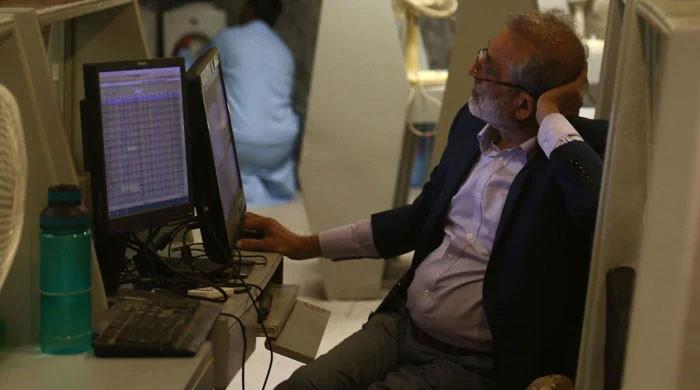KSE-100 soars past 80,000 points on privatisation, rate cut hopes


KARACHI: The Pakistan Stock Exchange (PSX) gained over 700 points on Wednesday, pushing the benchmark KSE-100 index beyond the 80,000 mark due to heightened investor interest in state-owned enterprises (SOEs).
The benchmark KSE-100 reached 80,292.59 points during the intraday, up by 739.71 points or 0.93% from the previous close of 79,552.89 points.

Speaking to Geo.tv, EFG Hermes Pakistan’s CEO Raza Jafri said that gain was led by a burst of buying in SOEs such as National Bank of Pakistan (NBP) and Oil and Gas Development Company (OGDC) with press reports indicating a push on privatisation, strategic stake sales, and addressing legacy issues.
“This comes within increasing hopes of sizeable interest rate cuts in [second half of 2024] and timely entry into an International Monetary Fund (IMF) programme,” he added.
The government’s privatisation plan consists of two to three years and it will be executed, Finance Minister Muhammad Aurangzeb said as the National Assembly passed the budget for FY25 last week.
Minister for Privatisation Aleem Khan has said that the federal government intends to privatise around 24 SOEs in the coming years — with the Pakistan International Airline expected to be the first enterprise to be privatised.
Meanwhile, Intermarket Securities Director Research Saad Ali cited optimism regarding the IMF programme and continuation of macro recovery after the passing of the budget without much bottlenecks or big amendments as the major reason for the surge.
He added: “The market continues to re-rate from still low valuations and prospect of lower interest rates in future.”
A day earlier, stocks closed significantly higher at 79,552.89 points amid expectations of better earnings in the half-year results by SOEs in the oil sector.
Meanwhile, Alpha Beta Core CEO Khurram Schehzad, said that the passing of the budget in line with most of the IMF’s conditions for the new larger and longer programme has given investors confidence in economic reforms and more stability in the economy.
Source link



